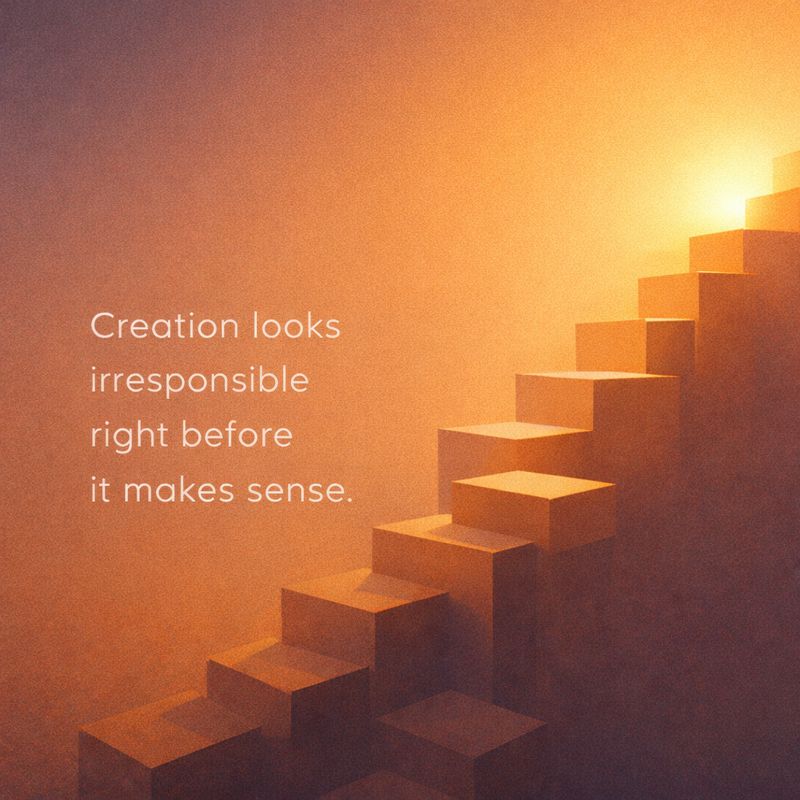I learned the hard way that building something after work hours isn’t just about energy and vision—it’s about systems, timing, and the discipline to keep moving when enthusiasm fades. My first side hustle was supposed to be the ticket out of corporate walls, but instead it became a slow drain on my wallet and confidence. The sting wasn’t just in the money lost; it was in knowing I had no one else to blame. Layoffs hurt, yes—but this? This was mine, and it collapsed under my own hands.
Failure teaches faster than any playbook ever will.
Most people don’t talk about their early failures because they fear it signals weakness. But the silence around them only makes others believe success should come quick if you just hustle hard enough. That silence is dangerous. I share this story not as a badge of shame but as proof that mistakes are training ground. Resilience isn’t built by winning easy; it’s forged in nights where you question everything yet keep going anyway.
The rollercoaster of starting small ventures will break those who expect smooth tracks. But for those who can ride through dips without jumping off, even a crash leaves behind lessons that shape the next climb. Let’s dive into the raw reality of my first failed attempt at building something of my own.
Burning Nights and Empty Accounts 🔥
I poured nights into my first venture after long days at corporate work. The idea felt promising enough: an online service with a clever hook. My mistake was believing energy could replace execution frameworks. I didn’t map distribution channels, didn’t set realistic budgets, and kept pushing forward blindly because “more hours” seemed like the answer. Slowly, savings trickled away while metrics stayed flat, and I realized passion without traction is just noise in disguise.
The hardest part wasn’t losing money; it was explaining to myself why nothing clicked despite relentless effort. I wasn’t lazy—I was simply unstructured. And structure decides survival far more than inspiration ever does.
I discovered hustle without systems eventually burns you out instead of building you up.
When Partners Pull You Under
I partnered with someone I barely knew because I thought sharing load would multiply results. Instead, it halved focus and doubled confusion. Decisions dragged on endlessly, roles blurred until neither of us owned critical pieces, and trust eroded every week. By the time bills piled up, we were arguing over pennies instead of chasing customers worth dollars. What looked like teamwork turned into dead weight—because partnership without clarity is a liability, not leverage.
Breaking ties felt like failure stacked on failure, but clarity demanded it. I learned that alignment in values is more important than complementary skills on paper.
I realized partners can accelerate you forward or quietly anchor you down.
Discipline Over Passion
At first, adrenaline carried me through late nights of coding and calls. But adrenaline fades fast when numbers stay flat month after month. What kept me from quitting immediately wasn’t passion—it was discipline: small routines of checking metrics daily, logging expenses weekly, forcing myself to pitch again after rejections piled up. Discipline doesn’t thrill you; it saves you when enthusiasm collapses under fatigue. Passion fuels the spark; discipline keeps oxygen flowing long enough for fire to spread.
The irony is that passion often got praised by peers while discipline remained invisible—but invisible muscles are often the strongest ones keeping you alive in business.
I found that discipline beats passion when bills arrive faster than revenue.
Ideas Mean Nothing Without Distribution
I used to think an idea itself could carry weight—that if something felt original enough, customers would magically find it. Reality crushed that dream quickly. Without channels to reach people consistently, even brilliant concepts starve in isolation. I had no marketing pipeline, no repeatable system for outreach—just blind faith that word-of-mouth might carry me forward someday. By the time I admitted distribution was missing, momentum had already died out completely.
It taught me one painful truth: invention matters less than attention if growth is your goal.
I accepted that ideas alone don’t feed you—distribution does.
Tools That Could Have Saved Me
If I could go back to those early months, there are simple tools that would have dramatically shifted outcomes—not by adding complexity but by forcing clarity.
Trello or Notion boards: These aren’t flashy but they turn chaos into visible flows. By seeing tasks laid out across columns, bottlenecks stop hiding behind busyness.
Google Analytics (set up correctly): Instead of guessing where traffic came from, this tool shows actual behaviors—what clicks matter versus what looks good on vanity dashboards.
Email marketing automations: Building an audience list from day one gives leverage even when revenue stalls; a simple welcome series often converts better than cold ads.
A weekly accountability review: Not software—just a habit hack where every Sunday night you write down what shipped and what didn’t so excuses lose power.
The real magic isn’t in fancy stacks; it’s in using simple tools consistently with ruthless honesty about what works versus what drains time.
Pitfalls That Repeat Themselves 🚧
In hindsight, most of my stumbles weren’t unique—they’re traps almost every solo builder falls into at some stage.
Confusing movement for progress: Long hours feel productive but mask missing fundamentals.
Avoiding financial tracking: Denial of numbers accelerates collapse faster than bad strategy.
Jumping into partnerships too early: Shared risk sounds comforting until misalignment multiplies problems.
Ignoring customer discovery: Building features for yourself instead of testing real demand wastes months.
Lacking patience with boring processes: Systems feel slow at first but compound quietly over time.
If you’re aware of these traps early enough, sidestepping them feels less like genius and more like common sense finally applied under pressure.
Climbing Again After Failure
The end of that first hustle didn’t end me—it hardened me for battles ahead. Every startup attempt afterward carried scars as hidden armor: scars reminding me not to skip distribution plans, not to ignore cash flow realities, not to lean on passion alone when discipline decides survival. With each new build came deeper caution paired with sharper execution. Instead of fearing failure again, I began expecting challenges as part of any climb worth making.
The lessons also spilled beyond business—into fitness journeys where consistency mattered more than hype workouts, and into personal rebuilds where patience trumped shortcuts. Once you see patterns across domains, resilience becomes less about luck and more about habits repeated through storms.
If you’re rebuilding now after your own collapse, know this: nobody escapes unscarred—but scars become maps when studied closely instead of hidden away.
From Scar Tissue To Strength
I used to avoid telling people about that failed venture because shame clung to it like dust on old shelves. Now I share it openly because silence helps no one and struggle deserves context rather than erasure.
Entrepreneurs scrolling social media see highlight reels but rarely hear about ugly nights pacing with unpaid bills or unpaid partners calling angry at midnight. By naming those truths aloud we normalize failure as part of growth instead of proof against potential.
Your journey might look different but pain rhymes across builders everywhere—the details vary yet the lessons echo closely if we’re honest enough to listen to each other’s stories without judgement or glossing over wounds.
The irony? That side hustle failure now fuels far more conversations than any temporary win ever did—and maybe that’s its hidden gift all along.
Share your scars before they harden into silence.
Related Post
Latest Post
Subscribe Us
Subscribe To My Latest Posts & Product Launches












